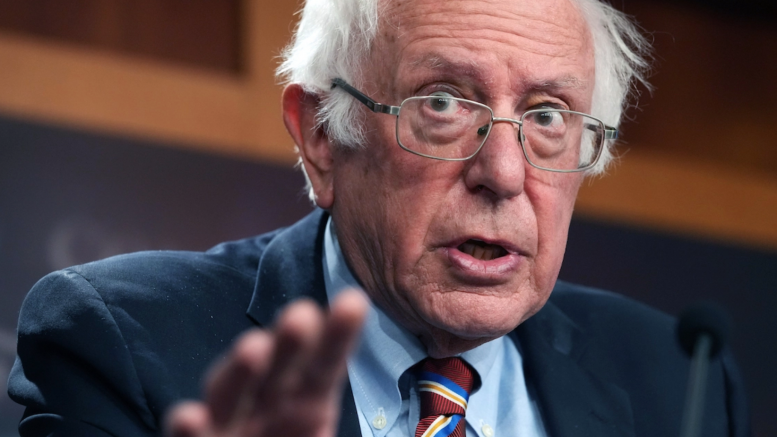A few days ago the Guardian ran an article by Bernie Sanders entitled “We must do everything possible to avoid an enormously destructive war in Ukraine.” He’s certainly right about that – no reasonable person would disagree. And he correctly names the culprit in the current crisis: Vladimir Putin.
But Bernie adds that he is worried about “the familiar drumbeats in Washington, the bellicose rhetoric that gets amplified before every war, demanding that we must ‘show strength, ‘get tough’ and not engage in ‘appeasement’.”
I disagree. Showing strength and getting tough are not terrible strategies for dealing with bullies, be they school-yard toughs or nuclear-armed aggressor states. And “appeasement” was not a good strategy back in 1938, and it’s not a good strategy today.
“Russian leaders,” he writes, “made clear their concerns about the prospect of former Soviet states becoming part of Nato and positioning hostile military forces along Russia’s border.” In Bernie’s view, “they are still legitimate concerns.”
Thirty years ago, when the USSR broke up, two things happened almost immediately. Every single one of the 15 constituent Soviet republics declared independence from Russia. And nearly all of those who could, applied to join NATO.
Whatever “legitimate” security concerns Russia might have had then (and now) are surely eclipsed the legitimate security concerns of those former Soviet republics. Those states, based on their own histories, are terrified of Russian attack and desperate for European and American support.
Among the first to join NATO were the three Baltic republics, tiny states that could not defend themselves against the twin horrors of Hitler’s Third Reich and Stalin’s Soviet empire. The idea that Russia is somehow threatened by these states is absurd.
Russia, he writes, has “an interest in the security policies of its neighbours” — meaning, presumably, a veto over which collective security agreements they might sign up to, such as NATO.
Countries, he writes, “should be free to make their own foreign policy choices, but making those choices wisely requires a serious consideration of the costs and benefits.” In other words, Ukraine in principal can look to Europe and the United States as potential allies, but they should think twice about this. There could be “costs”.
Maybe it’s time for Bernie and those who share this view to be given a short history lesson themselves — especially about NATO.
NATO was founded with the strong support of the British Labour government in April 1949. Social democratic and labour parties across Europe have long supported its existence. A powerful case can made that the collective security NATO provided ensured a peaceful end to the Cold War. Nearly all the countries that share a border with Russia understand this, and that is why they all clamour to join the alliance.
There should be no “costs” for sovereign states like Ukraine or Georgia when they want to join NATO. It is not only their right, but it makes sense for them. Putin’s threats confirm this every day.
The bottom line is we must do everything possible to prevent an aggressive Russian war in Europe. That means not repeating bits of Putin’s propaganda about the “threat” posted by states like Ukraine and Georgia.
The only threat worth talking about is Russian aggression — and the answer to that threat is a stronger, not a weaker, NATO.
This article appears in this week’s issue of Solidarity.
